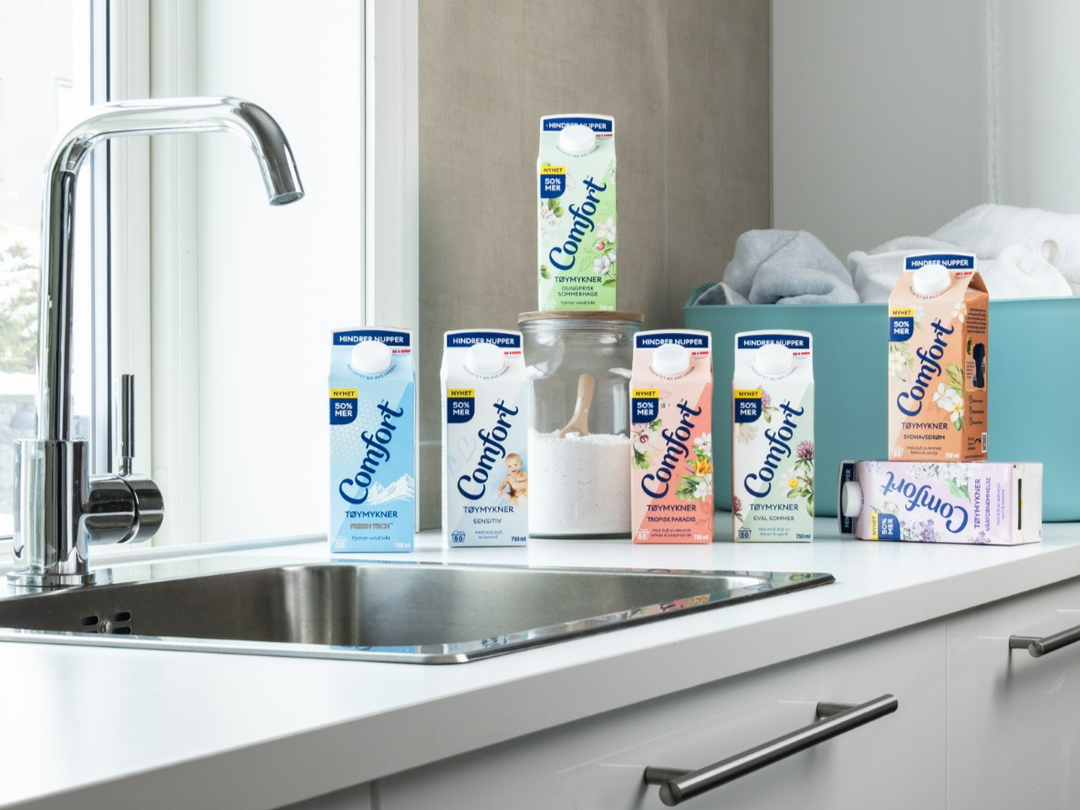Elopak Launch Sustainable Cartons with Recycled and Renewable Polymers

Photo Credit: Elopak
According to a recent announcement, global packaging company Elopak, in collaboration with Orkla Home and Personal Care (OHPC) and Dow, has introduced a new line of environmentally-friendly cartons. These innovative D-PAK cartons are made from a combination of recycled polyethylene (PE) and bio-circular (renewable) polymers, marking a significant step in advancing sustainable packaging solutions.
The new packaging design features responsibly sourced paperboard, coated with a thin layer of polymers to protect the product while minimizing waste. Reports indicate that the plastic layer in the cartons consists of 10% post-consumer recycled polyethylene, while the remaining 90% is derived from bio-circular polymers sourced from vegetable-based waste materials, such as used cooking oil. These materials are produced through a certified third-party mass balance chain of custody to ensure responsible sourcing and production.
According to the company’s website, the new D-PAK cartons will be implemented as the standard packaging for all OHPC products in the Nordic region starting this month. These products include popular brands such as Klar, OMO, and Comfort, covering a wide range of household items like laundry detergent and fabric softener.
Elopak also announced that its customers now have the option to include the new mix of recycled and renewable polymers in all Elopak offerings, which include both packaging blanks and closures. The company emphasized that its circular PE will always be combined with bio-circular polymers, aligning with its broader sustainability goal of reducing its carbon footprint.
In addition to this launch, Elopak recently revealed another sustainable innovation—a new type of paperboard designed for fresh liquids in chilled distribution chains. According to reports, this paperboard is expected to reduce carbon emissions by up to 14% compared to standard options. The company also reported that the new paperboard offers the same functionality and product protection as traditional white board packaging but with a significantly lower environmental impact.
Further contributing to sustainable packaging efforts, Dow, Niederwieser Group, and Kuraray also joined forces in May to develop recyclable vacuum bags for the food industry, designed to meet the upcoming Packaging and Packaging Waste Regulations (PPWR). These new vacuum bags offer a high-performance oxygen barrier, which helps extend the shelf life of food, and provide a cost-effective alternative to conventional packaging.
The development of D-PAK cartons and other sustainable packaging solutions is a part of a growing trend in the packaging industry toward reducing environmental impact. As companies increasingly seek to meet regulatory requirements and consumer demand for sustainable products, innovations like these will likely play a key role in shaping the future of packaging. Elopak’s ongoing commitment to reducing carbon footprints and integrating renewable materials sets a valuable example for other companies in the industry, and it is expected that more sustainable packaging innovations will emerge in the coming years, driving positive change across multiple sectors.
Source: Elopak






